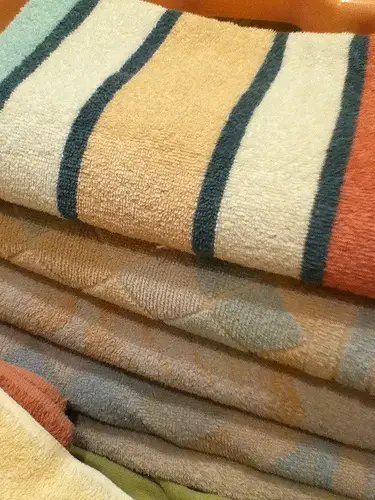 Did you know that your home appliances make up a third of your water and energy consumption? Many washing machines are designed to be largely energy and water efficient, so you can rest assured you’re helping the environment while reducing your bills.
Did you know that your home appliances make up a third of your water and energy consumption? Many washing machines are designed to be largely energy and water efficient, so you can rest assured you’re helping the environment while reducing your bills.
With a commitment to sustainability, many companies are developing energy effective, environmentally friendly home appliances. Bosch is one of the most aggressive companies in this market niche, with inventions such as the Logixx 8 Washing Machine that boast a five-star WELS water efficiency, and the EcoLogixx Heat Pump Dryer that offers a six-star energy rating. This particular product has granted Bosch a position as one of Australia’s most energy efficient dryers.
In fact, with a focus on reducing consumption, since 1994 Bosch has proudly reduced up to 46% water usage on their washing machines and 62% on their tumble dryer energy. Their unique technology and excessive research has enabled Bosch’s products to be a leader in the market and become a household name to not just your home laundry, but to commercial buildings and developments as well.
For many years Bosch has been implementing procedures that benefit both the environment and then community. In the 70s Bosch introduced environmental protection as a permanent part of their principles, in the 90s they established an environmental management system at all production locations to now when, in 2010, Bosch was rewarded with the “Innovation Prize for Climate and the Environment.”
Some of the technology being used in Bosch washing machines and dryers include something called an “EcoSilence Drive.” Not only is this revolutionary system whisper quiet, it is extremely economical too, being used in powerful machines like wind turbines where maximum power and minimum energy loss are required. The LoadSenor detects how much laundry is in the washing machine and ensures that the precise amount of energy and water is applied, and the VarioPerfect. This enables you to select either the EcoPerfect option that saves 25% electricity per wash, or the SpeedPerfect choice that can reduce your washing time by up to 60%, yet always ensures your clothes are washed to 100% performance.
As a chore that is not particularly favored by most, laundry is an inevitable part of our household lives. Thankfully, with ever-improving technology, the tiring effort of doing the washing is decreased, as is the water and energy consumption in your home — with no compromises on efficiency!
Photo Credit: Michelle TeGrootenhuis

I know I’m a testable person ( before anyone else says it ) i don’t recycle anything! I’m not gonna stand there and scrub lables off to do this. If you want it recycled you should scrub them off ? And I love doing laundry we are a big family so I wash about 2x a day always with tide because it smells sooo good when it comes out 🙂
I do all the maintenance on our appliances (along with about everything else around here) and I detest the new ones that are electronic everything that can’t be repaired (at least with my level of knowledge) without having to replace expensive circuit boards when some goes bad. Often, you’ll find the cost of a single board to be more than a 5-10yr old appliance is worth.
Case in point: Our previous washer was a top loader Whirlpool. To start it required pushing a button on the front panel, button connected to circuit board. Button, of course, got ‘wonky’ and didn’t want to start unless you pushed it 20 times and held your mouth right. Did a ‘work around’ on it that lasted a couple years, finally it was replace $300 board or pitch. I pitched, and bought the very last, all mechanical control (timer knob, other control switches) Hotpoint washer Lowe’s was ever going to sell.
That’s the machine we use now, and I’ll repair it as needed as long as I can get parts if something goes out in the future.
“Green” technology (which I’ve found often means “doesn’t work NEAR as well as the old tech) doesn’t really interest me.
Our water is a spring that comes out of the mountain, costs us near nothing (I do filter/sterilize it, but the cost is low)….so either use it, or it flows on down to the creek to the river to the Gulf of Mexico.
Our sewer is private septic, so again, no monthly cost based on gallons of water used.
Our power is self installed solar electric, and we generate enough to sell back an excess….so saving electric power isn’t much of a consideration either.
Combine all that with the enhanced repair costs when stuff does break, and I’ll take the old tech every day !
This! Remember when you could replace your own hoses, belts, pulleys, mixing valves, and timing chains?